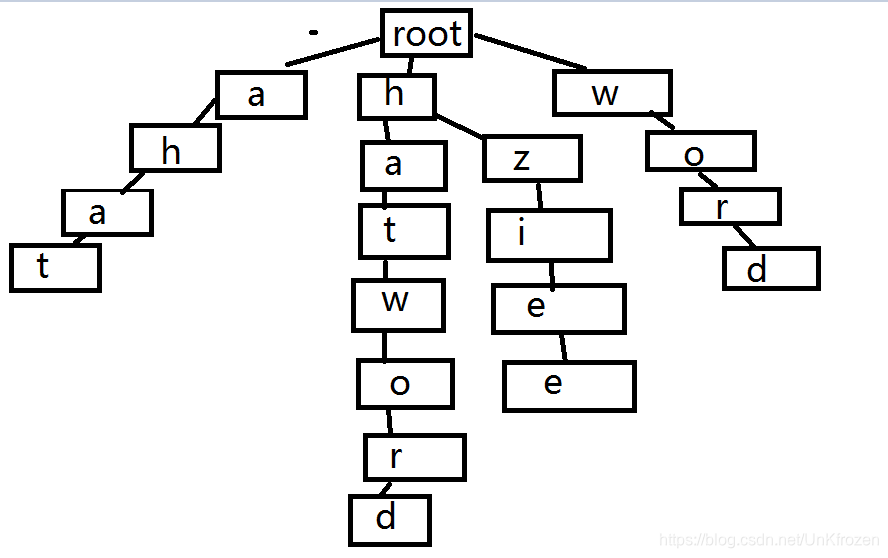一、何为字典树
简单讲,就是把一串字符,将每个字符当做一个节点,建立成一棵树
举个栗子,我们有:a,ahat,hat,hatword,hziee,word。这么一撮单词,建成什么样子呢?
如下图:
二、代码实现
(一)树本体
1 | typedef struct TreeNode* tn; |
root是根,next指向下一个字母。cnt指该字母出现的个数,exist指在这里是否可以形成一个单词。
像这样:
(二)建树
1 | tn New(tn p) |
简单粗暴,直接把一个字符串从头到尾撸进去即可,递归都不用写。
(三)查找
1 | int Query(tn p,string s) |
从上往下找,如果没有直接返回,有相应字符则继续。直到找到字符串的末尾,返回字符串末尾的exist,判断这个单词是否出现过。
(四)删除树==必写==
1 | void close(tn p) |
三、例题
Hat’s Words
A hat’s word is a word in the dictionary that is the concatenation of exactly two other words in the dictionary.
You are to find all the hat’s words in a dictionary.
Input
Standard input consists of a number of lowercase words, one per line, in alphabetical order. There will be no more than 50,000 words.
Only one case.
Output
Your output should contain all the hat’s words, one per line, in alphabetical order.
Sample Input
a
ahat
hat
hatword
hziee
word
Sample Output
ahat
hatword
解析
字符串数组开太小是罪
比较典型的题,问你能不能找到两个词,组成一个词。字典树储存,然后暴力拆一遍所有字符串来判断。
1 |
|